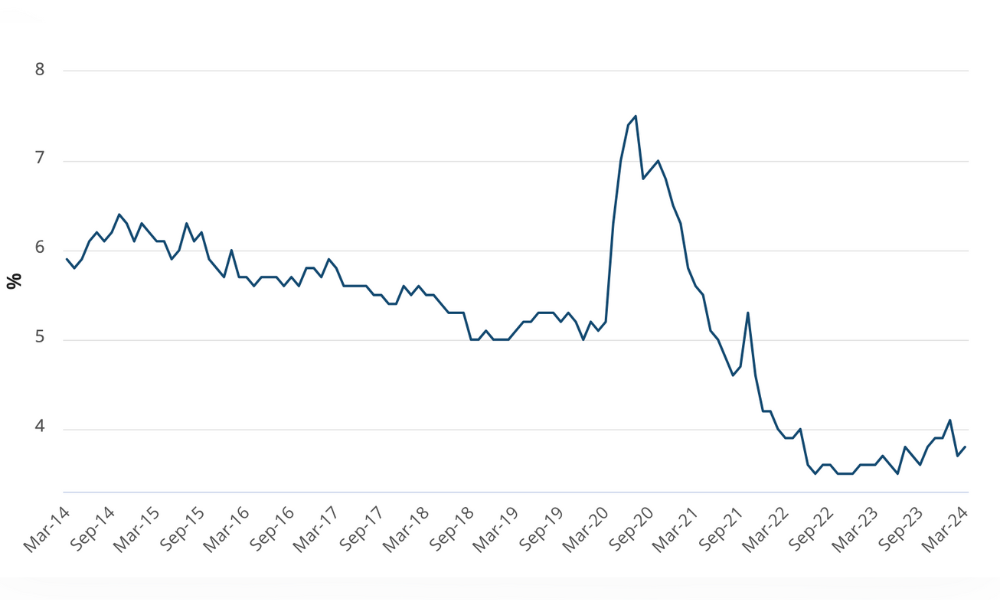It’s time to rethink management. Globalisation, advances in technology and increased diversity have put organisational challenges into hyper drive. Therese S. Kinal discusses the future of management.
It’s time to rethink management. Globalisation, advances in technology and increased diversity have put organisational challenges into hyper drive. Therese S. Kinal discusses the future of management.
Accelerating rates of globalisation and rapid technological advances are changing how we work, presenting complex and ambiguous challenges to today’s leaders. With the rise of practices such as crowdsourcing, crowdvoting and crowdfunding, the customer now plays a key role in your brand. Gone are the days where organisations could control how their products and services are consumed. Today’s leaders need to adapt to the constantly evolving environment by changing their way of thinking and how they practice management.
In my previous article, we mention that organisations of the future are neither consensus driven nor top down. They aren’t dictatorships nor are they anarchies. They’re not merely occupied with increasing shareholder value or making their people happy. Leaders of the future know that the two go together, and that happy and productive workforces is not about team building exercises or lucrative benefit packages, but about creating a working environment that offers purpose, mastery, challenge and autonomy, and in turn, creates more value for the business and its employees than the traditional approach.
Let’s take, for example, the simple hypothesis that employees will work harder for more money. This of course is the reason why most companies have bonuses linked to Key Performance Indicators (KPIs) by way of cascading their corporate strategy down throughout their organisation. In research conducted by London Business School (Birkinshaw, Rollins, Turconi, 2012), respondents answering the question “When thinking about a job, how important is each of the following factors to you, as something you value?” ranked financial remuneration as 7th most important, after factors such as ‘Working with good colleagues’ and ‘Independence’.
This is despite the millions that are poured into leadership development, training and communication initiatives every year. One Learning & Development manager (who shall remain nameless) illustrates the problem well: When discussing how to enhance learning in their senior executive leadership development programme, he responded: “But we don’t want these leaders to do anything differently or change anything. We just want them to get some ideas.” For £27 million? Unbelievable!
Organisations of the future need to operate as living systems that are interconnected and interdependent, and capable of responding to constantly changing environments. The role of the leader is to inspire greatness, not control or manage through KPIs. Likewise, the approach to strategic innovation and problem solving is participatory, not top down. Co-creation, dealing with ambiguity and uncertainty, and non-hierarchical networks are all key to making this work.
Rethinking Management is not about promoting the latest fad, repackaging an old concept or ignoring all the great work that has been done in this field up until now. It is about asking ourselves why we still use out-dated management practices, and taking a good, honest look at the needs of today’s and tomorrow’s diverse set of employees, customers and other stakeholders, and strategically choosing what to keep, what to adapt and what to reinvent. Here are some small and big examples of what you should start and stop doing:
|
What’s in |
What’s out |
|
Purpose as basis for strategy |
Shareholder value as basis for strategy |
|
Hiring people smarter than you |
Having all the answers |
|
Fair process |
Top down problem solving |
|
Adaptive strategy execution |
Strategy implementation |
|
Ecosystems / Communities of practice |
Knowledge management by IT |
|
Learning through action |
Classroom training |
|
Process innovation |
Process optimisation |
|
Flexible, adaptive thinking organisations |
Procedural, bureaucratic organisations |
|
People driven innovation |
Systems driven innovation |
|
Continual change and adaptation |
Unfreeze – change – freeze |
|
Freedom + scope + opportunities |
Job descriptions |
|
Customer engagement |
Traditional sales & marketing |
|
Meeting insights and next steps |
Meeting minutes |
Whether you’re motivated by making a difference or financial returns, it simply makes good business sense. Business with higher employee engagement rates show on average 12% higher customer advocacy, 18% higher productivity and 12% higher profitability[1].
Isn’t it time your organisation embraced the 21st Century?
About the author
Therese S. Kinal is the CEO and co-founder of Unleash, a disruptive innovator in the management education and consulting industry. She is the co-author of Unleashing: The Future of Work and writes, runs workshops and works with clients on a range of management issues including: The Future of Organisations, Leadership Development, Organisational Change, Adaptive Strategy Execution, Living Brand, Complex Problem Solving, Innovation and Entrepreneurship. Read her blog or follow her on Twitter.








